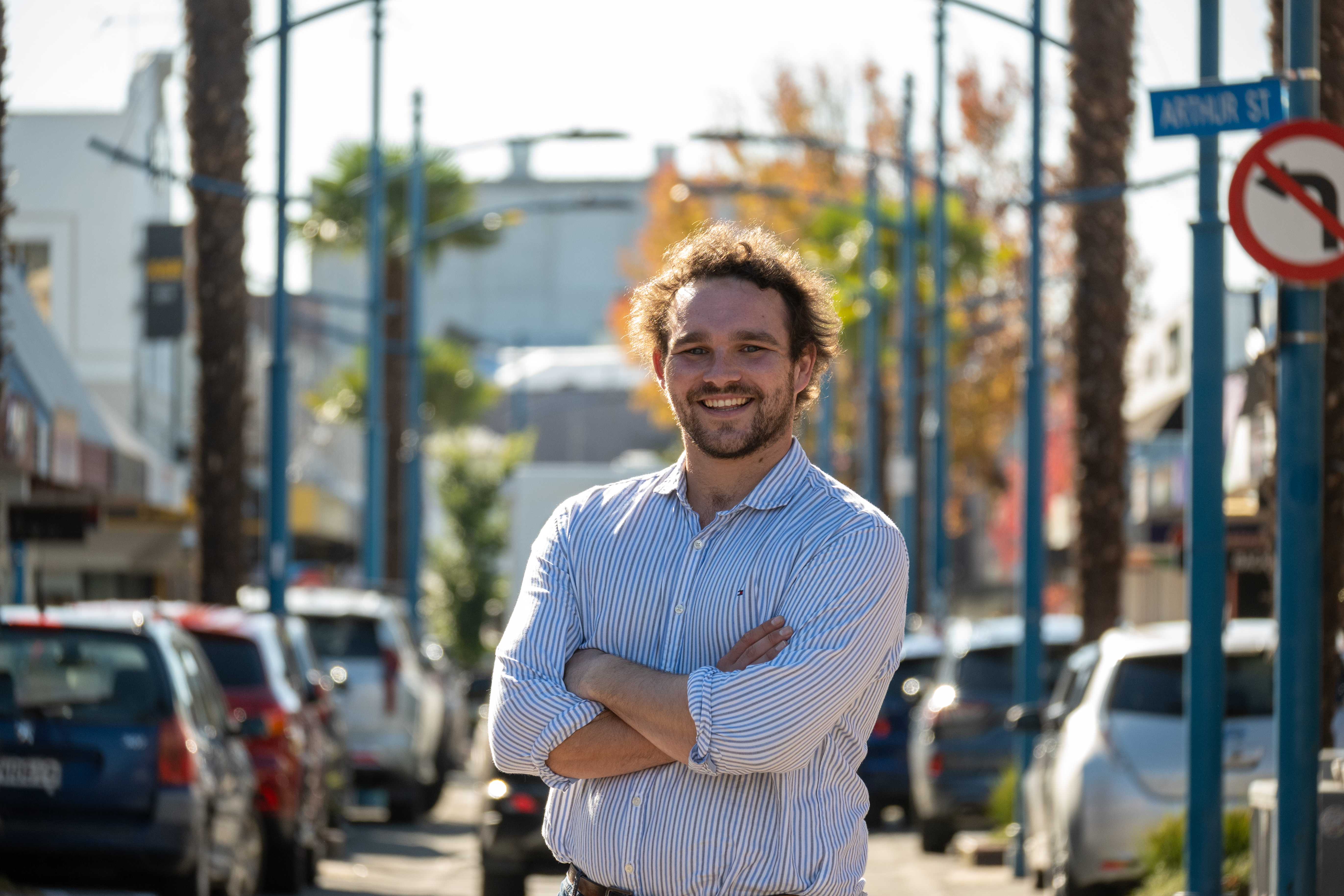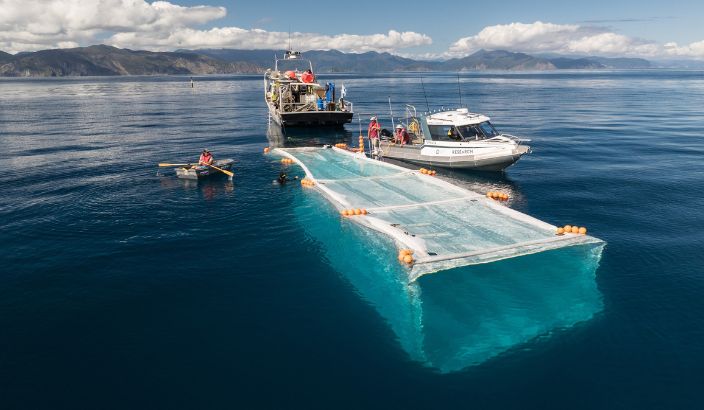Submerged snapper farm breaks new ground


The snapper pen is designed to float below the surface. Photo: Supplied.
A world-first ‘soft’ fish farm off D’Urville Island is being hailed as a success after a month of trial operations.
Plant & Food Research’s new open ocean aquaculture system, out of Nelson, consisting of a 10-15 metre-deep pen, a feeder buoy plus mooring and monitoring equipment, has been operating since April after first being investigated in 2016.
The first trial of 2000 snapper - drawn from local wild fish populations and raised at Plant & Food Research’s finfish facility - is also the first time commercial offshore snapper farming has been undertaken.
The prototype will see the original snapper population replaced with Chinook salmon in winter as a control examination of an already-farmed species in the same net for the benefit of the marine farming research.
Lead scientist Dr Suzy Black has been delighted by the current results their fish and the prototype farm are showing after nine years of development and six weeks in live operation under the ‘Whakapōhewa ki ahumoana – Reimagining Aquaculture’ programme. “We have done a lot of modelling and physical testing of different pen types to get to this point, and of course our fish biology experts know a lot about snapper and salmon, so we have been able to combine this knowledge and experience to get to this exciting stage of the programme – field trials in open water.
“This really is ‘reimagining aquaculture’ – it’s blue-skies thinking for the blue economy where fin-fish aquaculture is designed around the needs of the fish and has a low impact on the environment in the open ocean, while being very scalable and designed to be built using available components, making it low-cost.
“The young snapper are doing very well after their first month in the pen, including the big weather events in early May as being submerged below the waves and surges protected the fish from the storm.”
The ‘soft engineered’ structures of the fish pens, made of mesh, can be submerged beneath the sea to get away from waves and surges compared to the rigid ‘oil rig-like’ structures on the ocean surface that are used in commercial aquaculture overseas.
Due to having the snapper coming from the local population, any escaped fish will be familiar to the region and have minimal impact on other fish.
“Fish in those pens are as close to the wild type as possible so in the unlikely event of accidental escape, those fish will be ‘at home’ in Marlborough with little impact on other fish, and iwi representatives were appreciative of our focus on the animal’s physiology and preferences.
“We need to know that they are content, healthy, that they are being fed and are growing well, and that the water flowing through the pen is at a comfortable flowrate for them.
“This generation may see a few interesting sights for the first time with potential visits from fur seals, sharks and other new friends expected.”
A mobile system has the potential to increase the sector’s resilience to warming sea temperatures, address the growing demand for sustainably produced seafood and expand finfish aquaculture production capacity in New Zealand while reducing pressure on inshore, coastal areas.
While this first trial focuses on fish health within the pen, this prototype trial hopes to become a mobile system which is under development that can move around the ocean. Hopes are that moving aquaculture production offshore and into the open ocean presents an exciting opportunity to create an even more sustainable system for the seafood industry with a lighter environmental footprint.
“These are proof of concept trials and knowing that yes, we can successfully raise a new aquaculture finfish species like snapper as well as a valuable species like Chinook salmon in the open ocean is very exciting, we’re looking at many ways the pens could be made mobile.
“This research is of huge interest to the wider aquaculture industry, conservation in boosting populations with onshore raised fish, and to the government who continue to invest in the economic and environmental potential of open ocean aquaculture.”
